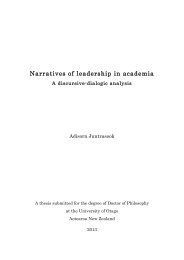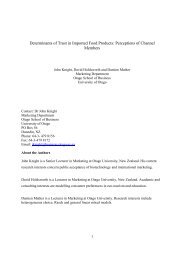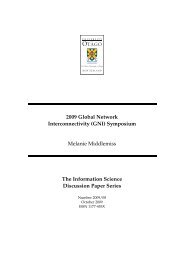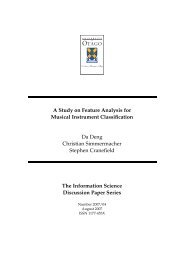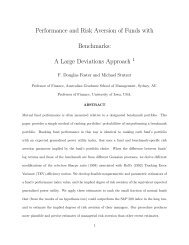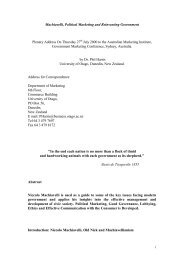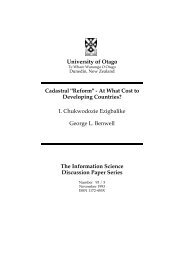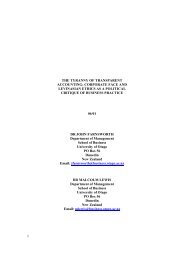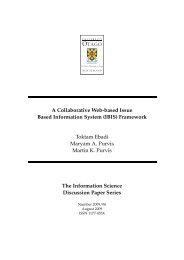Where is R2P grounded in international law? Anne-Marie Judson A ...
Where is R2P grounded in international law? Anne-Marie Judson A ...
Where is R2P grounded in international law? Anne-Marie Judson A ...
Create successful ePaper yourself
Turn your PDF publications into a flip-book with our unique Google optimized e-Paper software.
that have been <strong>in</strong>tegrated to prevent and protect citizens from harm. The act of<br />
om<strong>is</strong>sion <strong>is</strong> also well covered and conversely connected to Paragraph 139 of the World<br />
Summit outcome document (2005), whereby acts of om<strong>is</strong>sion are clearly cited as<br />
“manifestly fail<strong>in</strong>g to protect” show<strong>in</strong>g yet aga<strong>in</strong> that <strong>in</strong>ternational <strong>law</strong> <strong>is</strong> thoroughly<br />
conversant with attributions of om<strong>is</strong>sions and breaches <strong>in</strong> <strong>in</strong>ternational <strong>law</strong>.<br />
The breaches of conventions are well documented as mentioned <strong>in</strong> the Velasquez<br />
Rodriguez case where it was concluded:<br />
That a breach of convention “(…) <strong>is</strong> <strong>in</strong>dependent on whether the organ or<br />
official has contravened prov<strong>is</strong>ions of <strong>in</strong>ternal <strong>law</strong> or overstepped the limits of<br />
h<strong>is</strong> authority, under <strong>in</strong>ternational <strong>law</strong> a state <strong>is</strong> responsible for the acts of its<br />
agents undertaken <strong>in</strong> their official capacity and for their om<strong>is</strong>sions, even when<br />
those agents act outside the sphere of their authority or violate <strong>in</strong>ternal <strong>law</strong>.”<br />
The message <strong>is</strong> clear; the <strong>in</strong>ternational courts will not tolerate violations or breaches of<br />
<strong>in</strong>ternational <strong>law</strong>, states are responsible for the protection of their citizens from harm.<br />
So far th<strong>is</strong> thes<strong>is</strong> has covered the attributions of officials and officers of government,<br />
entities or organs of the state and delegations of authority from receiv<strong>in</strong>g and send<strong>in</strong>g<br />
states. The next section covers the conduct of persons or groups of persons who have<br />
acted <strong>in</strong> accordance with the state. Article 8 covers the conduct directed or controlled<br />
by a state; <strong>in</strong>clud<strong>in</strong>g the conduct of a person or group of persons, which can be<br />
considered an act of a state under <strong>in</strong>ternational <strong>law</strong>. When the person or group of<br />
persons are act<strong>in</strong>g on the <strong>in</strong>structions of or under the direction of, that state<br />
attribution will be placed on the state that has that control.<br />
WHAT FACTUAL RELATIONSHIPS MUST BE IN PLACE TO ATTRIBUTE<br />
OBLIGATIONS TO THE STATE?<br />
There must be <strong>in</strong> place a factual relationship between a person or persons and the<br />
state for attribution to be placed on the state <strong>in</strong> question. The commentaries on<br />
Article 8 of the draft articles on Responsibility of States for Internationally Wrongful<br />
Acts of a State, describe the attribution <strong>in</strong> detail. Th<strong>is</strong> section covers two areas: firstly,<br />
the acts have taken place because the state has given <strong>in</strong>structions to an actor; secondly<br />
persons have acted under the direction or control of the state. In light of these it does<br />
not matter that the person <strong>is</strong> a civilian or private <strong>in</strong>dividual so long as they have acted<br />
<br />
47



